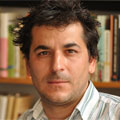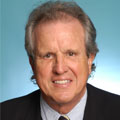Committee Members
Kenneth Blum, PhD, DHL
University of Florida, USA
 Kenneth Blum, BA (Pharmacy), M.Sc., PhD, DHL- received his PhD in Neuropharmacology from New York Medical College and is a graduate from Columbia University and New Jersey College of Medicine. He trained at the Institute of Behavioral Genetics, Colorado University, Boulder, Colorado. He also received a doctor of humane letters from St Martins University. He has published 542 abstracts, peer –reviewed articles and books (14). He has been the recipient of many grants and awards including a Life-Time Achievement in Addiction Medicine (Holistic Institute on Addiction Studies) and Presidential Award for Scientific Excellence (National Council of Alcohol & Drug Abuse Councilors), Scientific Achievement Award (City of Life Miami) and Best Abstract (2012) Award ASRA (Pain). Currently he serves as Editor –In Chief of the Journal of Genetic Syndromes & Gene Therapy; Journal of Genetic Disorders and Genetic Reports the Journal of Addiction Research & Therapy, and is on the editorial board of 14 other scientific journals. As the lead author on the first genetic association of a dopaminergic gene with severe alcoholism, he is considered by some as the “Father of Psychiatric Genetics”. He is the holder of many U.S. and foreign patents involving nutrigenomics. He is the lead author of a new Springer Neuroscience Brief book on the 12 Steps -entitled “Molecular Neurobiology of Addiction Recovery.” Currently, with Mark Gold, MD, they are developing the first ever “Neuroscience of Addiction” Reference work (a four volume 3,000 page 150 contributors to be released 2015) for Springer. Dr. Blum is an adjunct Professor, in both the Department of Psychiatry at the University of Florida College of Medicine and McKnight Brain Institute and the University of Vermont. He also serves as Neuroscience advisor to many companies and foundations including Dominion Diagnostics, RDSolutions, LLC, Path Foundation NY, Malibu Beach Recovery Center, Victory Nutrition, Impact Genomics. He is Emeritus Faculty of The Institute of Applied Genomics and Biotechnology, Napur, India. Major media outlets worldwide have covered his work on addiction. He is currently serving as President & CEO of IGENE, LLC, Austin Texas and Founding President United Science Group(USG) and Editor-in-Chief of the Journal of Reward Deficency Syndrome. His interests include Addiction, Neurogenetics, Psychopharmacolgy and Nutrition.
Kenneth Blum, BA (Pharmacy), M.Sc., PhD, DHL- received his PhD in Neuropharmacology from New York Medical College and is a graduate from Columbia University and New Jersey College of Medicine. He trained at the Institute of Behavioral Genetics, Colorado University, Boulder, Colorado. He also received a doctor of humane letters from St Martins University. He has published 542 abstracts, peer –reviewed articles and books (14). He has been the recipient of many grants and awards including a Life-Time Achievement in Addiction Medicine (Holistic Institute on Addiction Studies) and Presidential Award for Scientific Excellence (National Council of Alcohol & Drug Abuse Councilors), Scientific Achievement Award (City of Life Miami) and Best Abstract (2012) Award ASRA (Pain). Currently he serves as Editor –In Chief of the Journal of Genetic Syndromes & Gene Therapy; Journal of Genetic Disorders and Genetic Reports the Journal of Addiction Research & Therapy, and is on the editorial board of 14 other scientific journals. As the lead author on the first genetic association of a dopaminergic gene with severe alcoholism, he is considered by some as the “Father of Psychiatric Genetics”. He is the holder of many U.S. and foreign patents involving nutrigenomics. He is the lead author of a new Springer Neuroscience Brief book on the 12 Steps -entitled “Molecular Neurobiology of Addiction Recovery.” Currently, with Mark Gold, MD, they are developing the first ever “Neuroscience of Addiction” Reference work (a four volume 3,000 page 150 contributors to be released 2015) for Springer. Dr. Blum is an adjunct Professor, in both the Department of Psychiatry at the University of Florida College of Medicine and McKnight Brain Institute and the University of Vermont. He also serves as Neuroscience advisor to many companies and foundations including Dominion Diagnostics, RDSolutions, LLC, Path Foundation NY, Malibu Beach Recovery Center, Victory Nutrition, Impact Genomics. He is Emeritus Faculty of The Institute of Applied Genomics and Biotechnology, Napur, India. Major media outlets worldwide have covered his work on addiction. He is currently serving as President & CEO of IGENE, LLC, Austin Texas and Founding President United Science Group(USG) and Editor-in-Chief of the Journal of Reward Deficency Syndrome. His interests include Addiction, Neurogenetics, Psychopharmacolgy and Nutrition.
Rajendra Badgaiyan, MD, MMSc
University of Minnesota, USA
 Dr. Rajendra D. Badgaiyan is a Professor (Tenured) of Psychiatry at University of Minnesota. Dr. Badgaiyan graduated from Gandhi University with the degrees of MBBS, MD along with MA (Bhopal University) and completed his residency training in Psychiatry at the Harvard Medical School. Dr. Badgaiyan is a distinguished member of various renowned societies including Society of Nuclear Medicine, American Psychiatric Association, Society for Neuroscience and many more. He has authored more than 40 peer reviewed journal articles and has the credit of more than 30 presentations.
Dr. Rajendra D. Badgaiyan is a Professor (Tenured) of Psychiatry at University of Minnesota. Dr. Badgaiyan graduated from Gandhi University with the degrees of MBBS, MD along with MA (Bhopal University) and completed his residency training in Psychiatry at the Harvard Medical School. Dr. Badgaiyan is a distinguished member of various renowned societies including Society of Nuclear Medicine, American Psychiatric Association, Society for Neuroscience and many more. He has authored more than 40 peer reviewed journal articles and has the credit of more than 30 presentations.
Mark S. Gold, MD
University of Florida, USA
 Mark S. Gold is a translational researcher, author, and inventor best known for his pioneering work on the brain systems underlying the effects of opiate drugs, cocaine, and overeating. His research career started in 1972 and he has been a prolific author of more than 1,000 academic texts, abstracts, articles and chapters. Starting in the lab and teaching Neuroscience, his research in the 1970s in this area led to a dramatic change in the way opiate action was understood. He proposed a novel model for opiate action, dependence, and withdrawal. This locus coeruleus theory of opiate and drug withdrawal is a mainstay of 2014 theory and practice, even though he proposed it in 1978. Gold was then the senior author on the discovery paper and was awarded a patent for the discovery of new uses for clonidine (Catapres) which remains widely used for opiate withdrawal and pain management. Drs. Gold and Herbert Kleber were the first to suggest sequential use of clonidine and Naltrexone as well as, rapid detoxification and also post-clonidine detox maintenance with Naltrexone. During the mid-1980s Gold and colleagues developed a new theory for cocaine action, cocaine dependence, and cocaine withdrawal based on his understanding of the dopamine-rich areas of the brain. While most at the time did not consider cocaine addictive because of the lack of a classic withdrawal syndrome, Gold proposed a dopamine theory of pathological attachment, loss of control and addiction. Gold’s original work on cocaine led to a complete change in thinking about cocaine’s addiction liability, acute and chronic actions. This work re-defined addiction and moved the field toward fatal attraction, brain hijacking , anhedonia, and loss of control rather than abstinence symptom or signs basis. He helped focus many researchers and clinicians on dopamine and drug-induced deficiency states. His dopamine hypothesis and the role of dopamine in drug reinforcement are the mainstay of current drug addiction theory. Gold also had the first report of crack, cocaine smoking in the literature. This dopamine work, published first in 1984 and again in 1985 by Gold and Dackis remains seminal and are like his clonidine work considered by many classic examples of translational science. In addition to theory, Dr. Gold’s research has helped explain drugs , the slip to relapse process on the basis of state dependency of memory. He has also helped the field understand the differences between smoking cigarettes and marijuana and administration of nicotine or THC. As he developed methods to safely, rapidly and successfully detoxify addicts from opiates, he observed post-addiction hyperphagia and weight gain. So, he also has worked for over 30 years trying to understand overeating as related to drug of abuse or addiction models. Much of his early work in this area was descriptive, looking at cigarette smokers and other addicts during abstinence and protracted withdrawal. He observed, hyperphagia and hypersexuality which led him to call for education, intervention, and prevention before and during addiction treatment. . He described Food Addiction in several classic papers and texts. With Kelly Brownell, Gold led the Yale University historic conference of food and addiction experts. This and subsequent work became the basis of the modern classic text, Food Addiction by Brownell & Gold for Oxford University Press. Gold’s work at Princeton University with Bart Hoebel and Nicole Avena led to a model for addiction based on sugar and drug-like properties of sugar and fructose corn syrup. His Princeton research lab has made enough progress in modeling sugar addictions that the self - administration protocol can be used to screen for new addiction-compatible anti-obesity treatments that work on the basis of food preference rather than appetite suppression. He was the first Editor of Addiction Medicine for Up To Date and the author of many practice guidelines, ASAM papers and texts for clinicians. He has served on numerous NIDA, ONDCP, CASA, DEA, Betty Ford and Psychiatric Boards and panels. Since his career in translational research began in the early 1970s, his work has laid the foundation for others who followed in Addiction research. His work has cemented the neuroanatomy of acute drug action, withdrawal and also dependence. His work reduced stigma, served as the basis for many educational and prevention campaigns and changed the lives of alcoholics and addicts with basic and applied science that led to new and evidence-based treatment. Dr. Gold was awarded the 2006 Nelson J Bradley award by NAATP, the American Psychiatric Associations Foundations Fund Award & Prize, China Academy of Sciences and other prestigious awards. Most recently (2015) , he was awarded the John P McGovern award and prize by ASAM at the ASAM Annual Convention for his distinguished career. In addiction medicine. Dr. Gold is a multiple patent holder, author of nearly 1,000 scientific articles, chapters, textbooks, and general audience books. He is a Distinguished Alumnus of Washington University in St. Louis, University of Florida and Yale University. Dr. Gold , retired after 25 years as Professor, Distinguished Professor, Chairman and University-wide Distinguished Alumni Professor at the University of Florida. Currently he is lecturing at Medical Schools around the USA including recent Grand Rounds at Yale University, USC and the Univesity of Cinncinatti . He is Chairman of the Scientific Advisory Boards for RiverMend Health.
Mark S. Gold is a translational researcher, author, and inventor best known for his pioneering work on the brain systems underlying the effects of opiate drugs, cocaine, and overeating. His research career started in 1972 and he has been a prolific author of more than 1,000 academic texts, abstracts, articles and chapters. Starting in the lab and teaching Neuroscience, his research in the 1970s in this area led to a dramatic change in the way opiate action was understood. He proposed a novel model for opiate action, dependence, and withdrawal. This locus coeruleus theory of opiate and drug withdrawal is a mainstay of 2014 theory and practice, even though he proposed it in 1978. Gold was then the senior author on the discovery paper and was awarded a patent for the discovery of new uses for clonidine (Catapres) which remains widely used for opiate withdrawal and pain management. Drs. Gold and Herbert Kleber were the first to suggest sequential use of clonidine and Naltrexone as well as, rapid detoxification and also post-clonidine detox maintenance with Naltrexone. During the mid-1980s Gold and colleagues developed a new theory for cocaine action, cocaine dependence, and cocaine withdrawal based on his understanding of the dopamine-rich areas of the brain. While most at the time did not consider cocaine addictive because of the lack of a classic withdrawal syndrome, Gold proposed a dopamine theory of pathological attachment, loss of control and addiction. Gold’s original work on cocaine led to a complete change in thinking about cocaine’s addiction liability, acute and chronic actions. This work re-defined addiction and moved the field toward fatal attraction, brain hijacking , anhedonia, and loss of control rather than abstinence symptom or signs basis. He helped focus many researchers and clinicians on dopamine and drug-induced deficiency states. His dopamine hypothesis and the role of dopamine in drug reinforcement are the mainstay of current drug addiction theory. Gold also had the first report of crack, cocaine smoking in the literature. This dopamine work, published first in 1984 and again in 1985 by Gold and Dackis remains seminal and are like his clonidine work considered by many classic examples of translational science. In addition to theory, Dr. Gold’s research has helped explain drugs , the slip to relapse process on the basis of state dependency of memory. He has also helped the field understand the differences between smoking cigarettes and marijuana and administration of nicotine or THC. As he developed methods to safely, rapidly and successfully detoxify addicts from opiates, he observed post-addiction hyperphagia and weight gain. So, he also has worked for over 30 years trying to understand overeating as related to drug of abuse or addiction models. Much of his early work in this area was descriptive, looking at cigarette smokers and other addicts during abstinence and protracted withdrawal. He observed, hyperphagia and hypersexuality which led him to call for education, intervention, and prevention before and during addiction treatment. . He described Food Addiction in several classic papers and texts. With Kelly Brownell, Gold led the Yale University historic conference of food and addiction experts. This and subsequent work became the basis of the modern classic text, Food Addiction by Brownell & Gold for Oxford University Press. Gold’s work at Princeton University with Bart Hoebel and Nicole Avena led to a model for addiction based on sugar and drug-like properties of sugar and fructose corn syrup. His Princeton research lab has made enough progress in modeling sugar addictions that the self - administration protocol can be used to screen for new addiction-compatible anti-obesity treatments that work on the basis of food preference rather than appetite suppression. He was the first Editor of Addiction Medicine for Up To Date and the author of many practice guidelines, ASAM papers and texts for clinicians. He has served on numerous NIDA, ONDCP, CASA, DEA, Betty Ford and Psychiatric Boards and panels. Since his career in translational research began in the early 1970s, his work has laid the foundation for others who followed in Addiction research. His work has cemented the neuroanatomy of acute drug action, withdrawal and also dependence. His work reduced stigma, served as the basis for many educational and prevention campaigns and changed the lives of alcoholics and addicts with basic and applied science that led to new and evidence-based treatment. Dr. Gold was awarded the 2006 Nelson J Bradley award by NAATP, the American Psychiatric Associations Foundations Fund Award & Prize, China Academy of Sciences and other prestigious awards. Most recently (2015) , he was awarded the John P McGovern award and prize by ASAM at the ASAM Annual Convention for his distinguished career. In addiction medicine. Dr. Gold is a multiple patent holder, author of nearly 1,000 scientific articles, chapters, textbooks, and general audience books. He is a Distinguished Alumnus of Washington University in St. Louis, University of Florida and Yale University. Dr. Gold , retired after 25 years as Professor, Distinguished Professor, Chairman and University-wide Distinguished Alumni Professor at the University of Florida. Currently he is lecturing at Medical Schools around the USA including recent Grand Rounds at Yale University, USC and the Univesity of Cinncinatti . He is Chairman of the Scientific Advisory Boards for RiverMend Health.
Subhash Pandey, PhD
University of Illinois at Chicago, USA
 Dr. Subhash C. Pandey received his PhD from the Pharmacology division of the Central Drug Research Institute in Lucknow, India and then received his postdoctoral training in neuropsychopharmacology in the Department of Psychiatry, University of Illinois at Chicago. He is currently Professor of Psychiatry, Anatomy and Cell Biology and director of neuroscience alcoholism research at University of Illinois at Chicago, Chicago. Dr Pandey also holds position as a VA Career Scientist at the Jesse Brown VA Medical Center, Chicago. He is well known for his scientific contributions towards molecular and cellular neuroscience of alcoholism and anxiety disorders. He is an active member of the Research Society on Alcoholism (RSA), International Society for Biomedical Research on Alcoholism (ISBRA) and several other scientific societies, and a fellow of the Indian Academy of Neurosciences and Collegium Internationale Neuro-sychophamacologicum (CINP). His research has given valuable scientific knowledge for the better understanding of pathophysiology of complex brain diseases, such as addictive behaviors. Several of his scientific discoveries have been highlighted by the National Institutes of Health. Dr. Pandey has received various honors and awards, most notably the 2010 Bowles Lectureship Award in alcoholism research by University of North Carolina at Chapel Hill, USA and Mario Toppo Distinguished Scientist Award by Association of Scientists of Indian Origin in America in 2014.
Dr. Subhash C. Pandey received his PhD from the Pharmacology division of the Central Drug Research Institute in Lucknow, India and then received his postdoctoral training in neuropsychopharmacology in the Department of Psychiatry, University of Illinois at Chicago. He is currently Professor of Psychiatry, Anatomy and Cell Biology and director of neuroscience alcoholism research at University of Illinois at Chicago, Chicago. Dr Pandey also holds position as a VA Career Scientist at the Jesse Brown VA Medical Center, Chicago. He is well known for his scientific contributions towards molecular and cellular neuroscience of alcoholism and anxiety disorders. He is an active member of the Research Society on Alcoholism (RSA), International Society for Biomedical Research on Alcoholism (ISBRA) and several other scientific societies, and a fellow of the Indian Academy of Neurosciences and Collegium Internationale Neuro-sychophamacologicum (CINP). His research has given valuable scientific knowledge for the better understanding of pathophysiology of complex brain diseases, such as addictive behaviors. Several of his scientific discoveries have been highlighted by the National Institutes of Health. Dr. Pandey has received various honors and awards, most notably the 2010 Bowles Lectureship Award in alcoholism research by University of North Carolina at Chapel Hill, USA and Mario Toppo Distinguished Scientist Award by Association of Scientists of Indian Origin in America in 2014.
Zsolt Demetrovics, PhD
Eötvös Loránd University, Hungary
 Zsolt Demetrovics, Ph.D. is clinical psychologist and cultural anthropologist. Professor Demetrovics is director of the Institute of Psychology at the Eötvös Loránd University, Budapest, Hungary and head of the Department of Clinical Psychology & Addiction at the same Institute. He has published numerous research papers on the epidemiology and psychological background of substance use behavior and behavioral addictions.
Zsolt Demetrovics, Ph.D. is clinical psychologist and cultural anthropologist. Professor Demetrovics is director of the Institute of Psychology at the Eötvös Loránd University, Budapest, Hungary and head of the Department of Clinical Psychology & Addiction at the same Institute. He has published numerous research papers on the epidemiology and psychological background of substance use behavior and behavioral addictions.
David Baron, DO, MSEd
USC University, USA
 David Baron is currently Professor and Vice Chair, and Chief of Psychiatry at University Hospital at the Keck School of Medicine, University of Southern California. Dr. Baron is also the Director of the Global Center for Exercise, Psychiatry and Sport at USC and Chairman of the Section on Exercise, Psychiatry and Sport for the World Psychiatric Association/World Health Organization. He is also a current member of the Executive Board of Directors for the International Society of Sports Psychiatrists and the 2010 Consumer Council of America "Top Doc" for Sport Psychiatry. Dr. Baron is the former Deputy Clinical Director of the National Institute of Mental Health and Chair of the Department Psychiatry at the NIH graduate school1989-1997 and Temple University (1998-2010).
David Baron is currently Professor and Vice Chair, and Chief of Psychiatry at University Hospital at the Keck School of Medicine, University of Southern California. Dr. Baron is also the Director of the Global Center for Exercise, Psychiatry and Sport at USC and Chairman of the Section on Exercise, Psychiatry and Sport for the World Psychiatric Association/World Health Organization. He is also a current member of the Executive Board of Directors for the International Society of Sports Psychiatrists and the 2010 Consumer Council of America "Top Doc" for Sport Psychiatry. Dr. Baron is the former Deputy Clinical Director of the National Institute of Mental Health and Chair of the Department Psychiatry at the NIH graduate school1989-1997 and Temple University (1998-2010).
He developed, and holds the copyright on the only validated depression screener specifical for athletes (BDSA), which is currently in use in over 7 countries. He has over 30 years of clinical experience in sports medicine and sports psychiatry and has worked with athletes of all ages and levels of competition including NCAA, Olympic, and professional. He has published over 130 peer reviewed publications and presented over 300 scientific presentations in the US and over 30 invited international talks, many in the area of Doping in Sports and Depression, Drug Use and Concussion in athletes. His current clinical and research interests are in the neuropsychiatric sequel of recurrent sub-clinical concussion and TBI in athletes, specifically focused on developing more sensitive, user-friendly screening instruments and methods, and increasing public awareness of this growing problem.
Sara Jo Nixon, PhD
University of Florida, USA
 Dr. Nixon is Professor of Psychiatry and Psychology, Co-Vice Chair, Department of Psychiatry, Chief of Addiction Research (Psychiatry), Director of the Biobehavioral Core of the University of Florida Clinical and Translational Science Institute, and Director of the Neurocognitive Laboratory in the UF Department of Psychiatry. She is also one of the co-directors for UF’s Center for Addiction Research and Education and co-Director of UF’s NIDA-funded T32. Her research team focuses on the neurobehavioral concomitants of substance use and dependence. Her work uses comprehensive assessments including neuropsychological testing, brain electrophysiology (electroencephalography and event-related potentials), and clinical research interviews. A recurrent theme in her work has been the exploration of sex/gender differences in both the psychosocial and neurobiological aspects of addiction.
Dr. Nixon is Professor of Psychiatry and Psychology, Co-Vice Chair, Department of Psychiatry, Chief of Addiction Research (Psychiatry), Director of the Biobehavioral Core of the University of Florida Clinical and Translational Science Institute, and Director of the Neurocognitive Laboratory in the UF Department of Psychiatry. She is also one of the co-directors for UF’s Center for Addiction Research and Education and co-Director of UF’s NIDA-funded T32. Her research team focuses on the neurobehavioral concomitants of substance use and dependence. Her work uses comprehensive assessments including neuropsychological testing, brain electrophysiology (electroencephalography and event-related potentials), and clinical research interviews. A recurrent theme in her work has been the exploration of sex/gender differences in both the psychosocial and neurobiological aspects of addiction.
Dr. Nixon has authored over 130 peer-reviewed articles and book chapters as well as having edited two books. She has served on and chaired numerous NIH and VA study panels, reviews for a diverse array of scientific journals and currently serves on the editorial board for two additional journals. She has made hundreds of scientific presentations and held grants and awards from a variety of private, state and national sources including the National Institute on Alcohol Abuse and Alcoholism (NIAAA), the National Institute on Drug Abuse (NIDA), the Department of Veterans Affairs (VA), Flight Attendant Medical Research Institute (FAMRI), and more. Additionally, she is a Past President of the Research Society on Alcoholism and the Society of Addiction Psychology (Div. 50 of the APA). She currently serves on the American Psychological Association’s Board of Scientific Affairs and is an elected Fellow in both Divisions 28 (Psychopharmacology and Substance Abuse) and 50 of the APA.
Marlene Oscar-Berman, PhD
Boston University, USA
 Dr. Berman is professor of psychiatry, neurology, and anatomy & neurobiology, as well as a research career scientist at the Veterans Affairs (VA) Boston Healthcare System. To date, she has published approximately 200 peer-reviewed manuscripts, invited reviews, and book chapters. She has made major contributions in multiple distinct areas, but is probably best known for her insightful work on brain mechanisms associated with perceptual, emotional, and cognitive impairments in chronic alcoholics with and without Korsakoff’s syndrome. Dr. Berman’s contributions to science have been recognized with numerous awards and honors, ranging from a Fulbright scholarship, to awards for excellence in research from the Massachusetts Neuropsychological Society, the Research Society on Alcoholism, and the Distinguished Career award from the International Neuropsychological Society, to name a few.
Dr. Berman is professor of psychiatry, neurology, and anatomy & neurobiology, as well as a research career scientist at the Veterans Affairs (VA) Boston Healthcare System. To date, she has published approximately 200 peer-reviewed manuscripts, invited reviews, and book chapters. She has made major contributions in multiple distinct areas, but is probably best known for her insightful work on brain mechanisms associated with perceptual, emotional, and cognitive impairments in chronic alcoholics with and without Korsakoff’s syndrome. Dr. Berman’s contributions to science have been recognized with numerous awards and honors, ranging from a Fulbright scholarship, to awards for excellence in research from the Massachusetts Neuropsychological Society, the Research Society on Alcoholism, and the Distinguished Career award from the International Neuropsychological Society, to name a few.
David E. Smith, MD
University of California at San Francisco, USA
 Dr. David E. Smith is recognized as a national leader in the treatment of addictive disease, the psychopharmacology of drugs, new research strategies in the management of drug abuse problems, and appropriate prescribing practices for physicians. He teaches that addiction is a primary medical illness which is best treated in a multidisciplinary fashion, utilizing the group process and the 12-Step programs of Alcoholics Anonymous, Narcotics Anonymous and Cocaine Anonymous.
Dr. David E. Smith is recognized as a national leader in the treatment of addictive disease, the psychopharmacology of drugs, new research strategies in the management of drug abuse problems, and appropriate prescribing practices for physicians. He teaches that addiction is a primary medical illness which is best treated in a multidisciplinary fashion, utilizing the group process and the 12-Step programs of Alcoholics Anonymous, Narcotics Anonymous and Cocaine Anonymous.
Dr. Smith lectures on the management of psychoactive drug dependence, including cocaine, alcohol and prescription drugs. He also speaks on the subjects of impaired and recovering clinicians, substance abuse in the workplace, dual diagnosis disorders, and substance abuse and the criminal justice system, among many other topics. He provides medical review of DOT and private industry drug testing and prescription drug plans, and legal consultation.
Dr. Smith founded the Haight Ashbury Free Clinics in 1967, inaugurating the principle of “Health Care is a Right, not a Privilege.” He has served on federal, state and local bodies addressing substance use, abuse and treatment, and has received numerous awards, including the 2013 Peter E. Haas Award from the University of California Berkeley. He lectures extensively and is the author/co-author of over 360 professional articles and books, including Unchain Your Brain: 10 Steps to Breaking the Addictions that Steal Your Life, with Dr. Daniel Amen.
Panayotis K. Thanos, PhD
SUNY Stony Brook, USA
 Dr. Thanos is interested in translational research utilizing various rodent models of psychopathology to better understand the mechanisms involved in substance use disorders (SUD) and addiction including the role of dopamine signaling , genes, environment, as well brain circuit mapping and connectivity changes in food, drug and alcohol abuse. Dr. Thanos is the Director of the Behavioral Neuropharmacology and Neuroimaging Lab and has authored more than 85 peer reviewed articles on reward and addiction.
Dr. Thanos is interested in translational research utilizing various rodent models of psychopathology to better understand the mechanisms involved in substance use disorders (SUD) and addiction including the role of dopamine signaling , genes, environment, as well brain circuit mapping and connectivity changes in food, drug and alcohol abuse. Dr. Thanos is the Director of the Behavioral Neuropharmacology and Neuroimaging Lab and has authored more than 85 peer reviewed articles on reward and addiction.